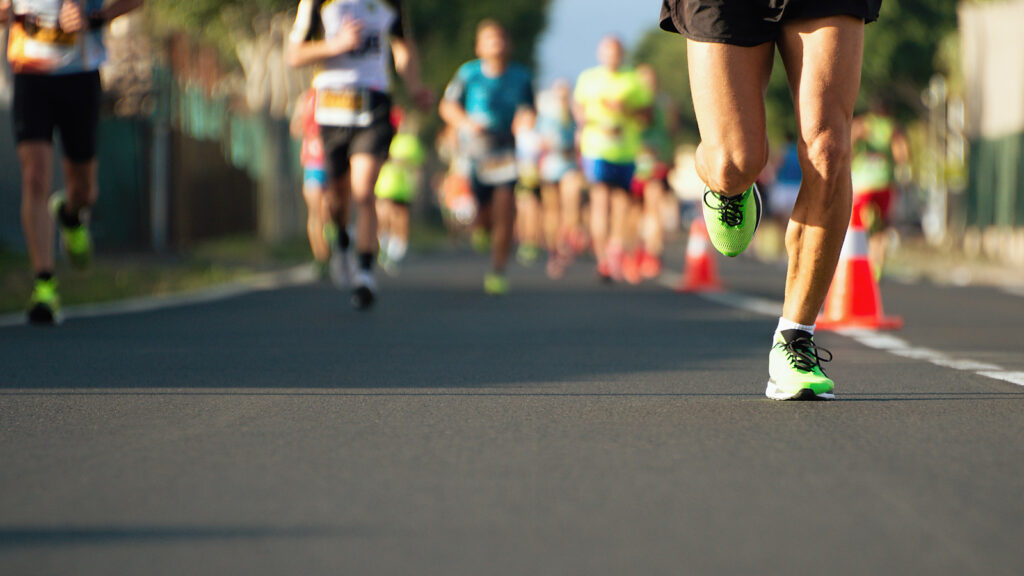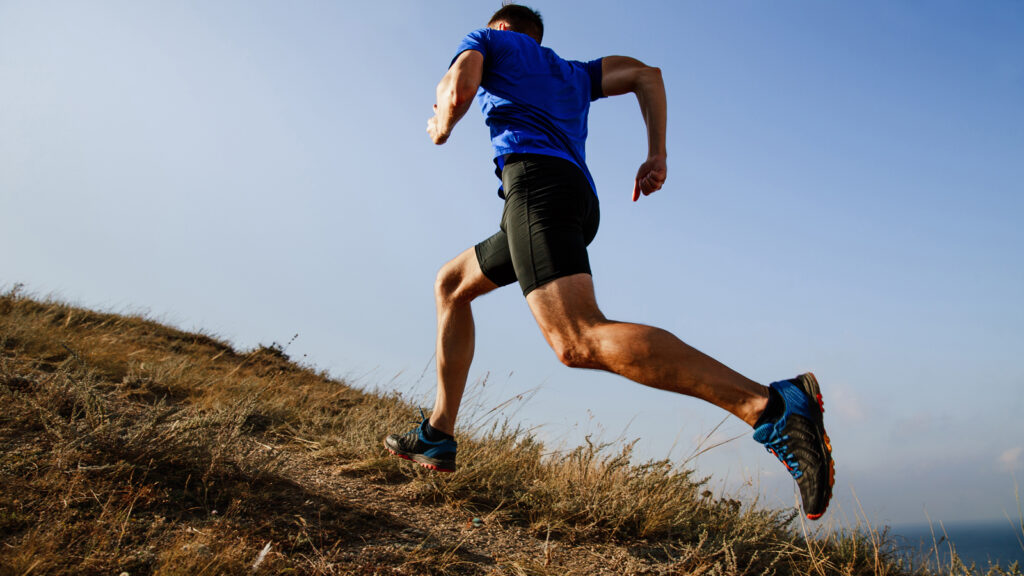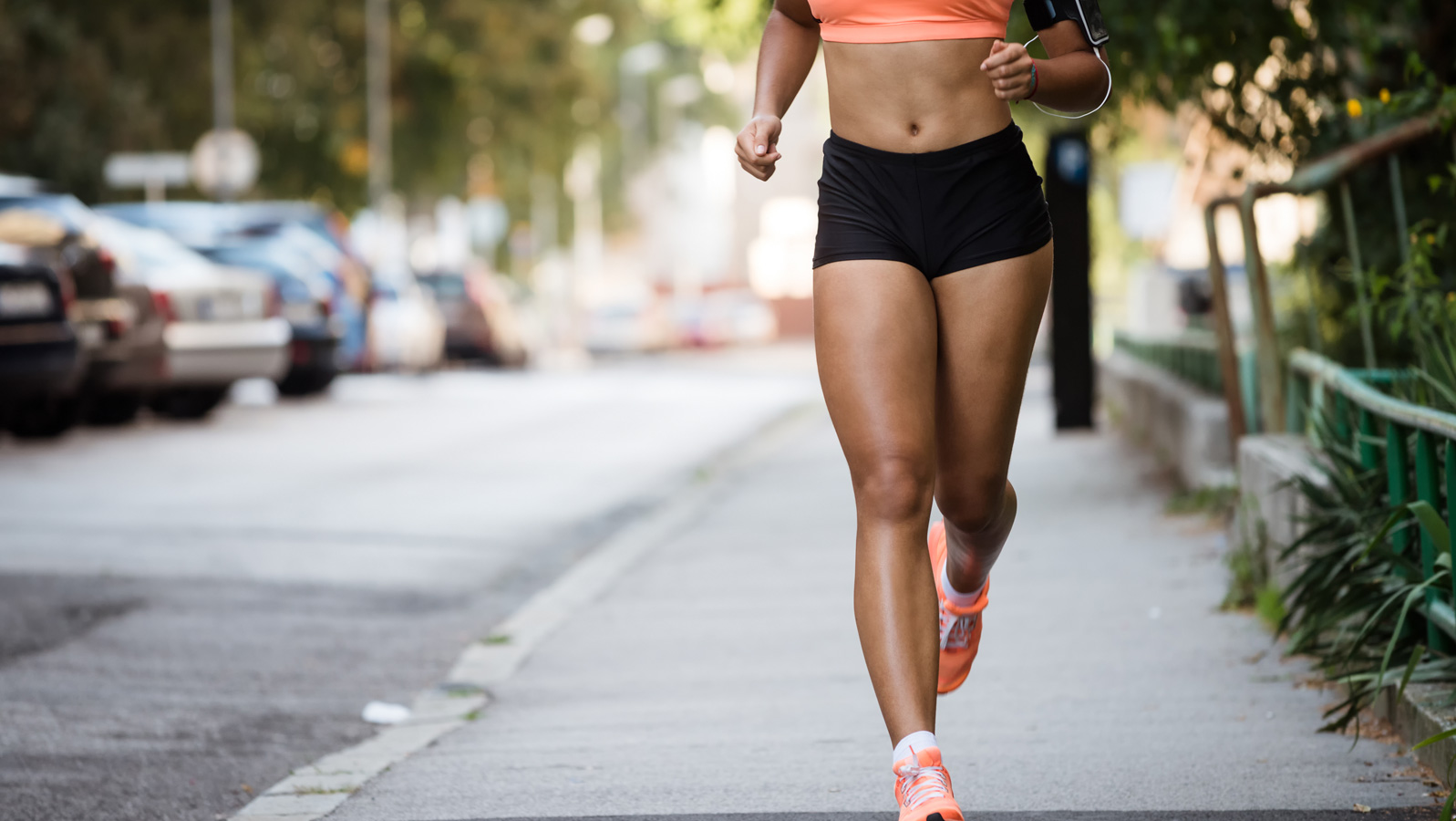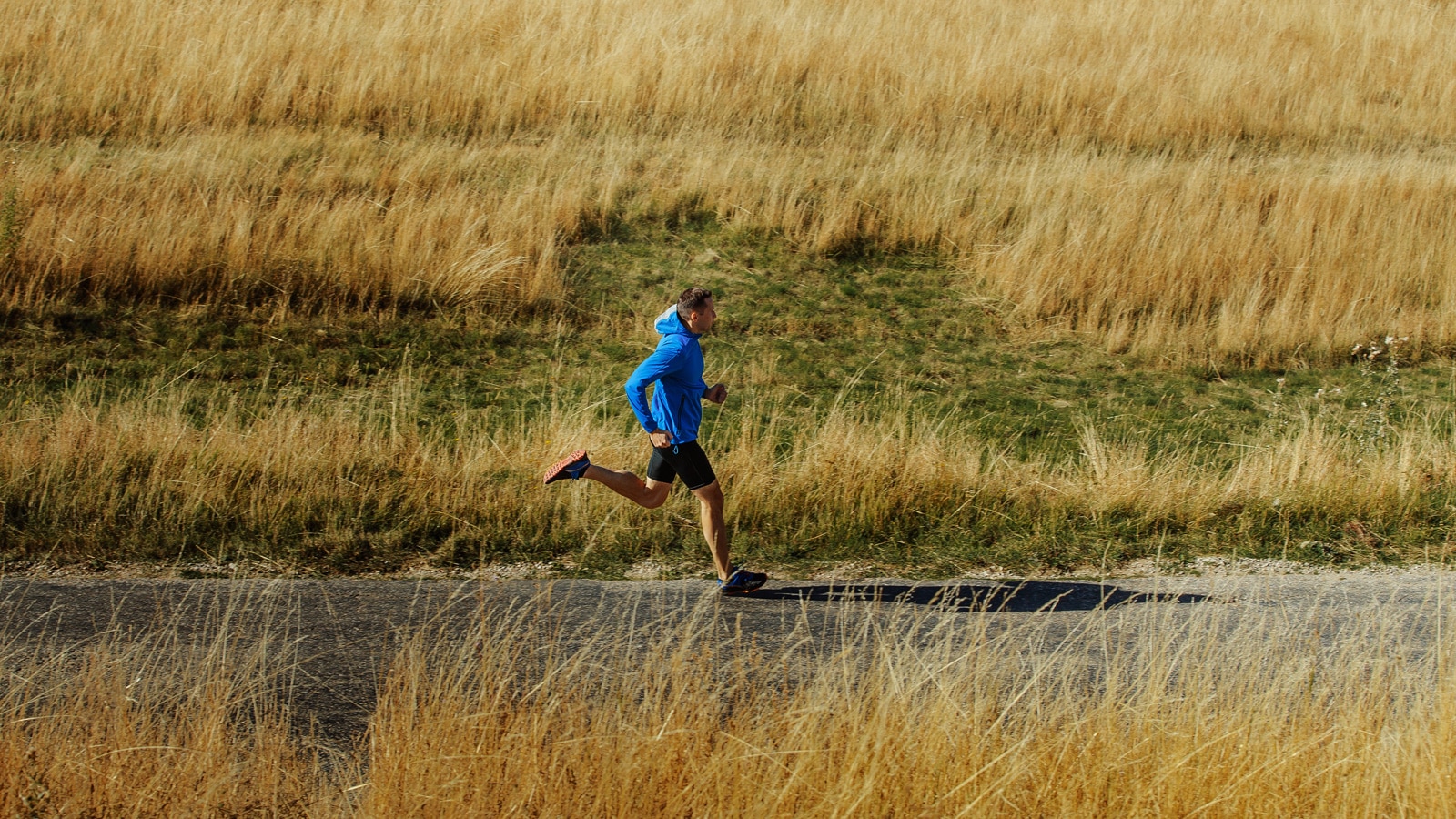Average Mile Time By Age Group And Sex + How To Run Faster
Just curious or looking to improve your mile time? Knowing the average mile time for your age group and gender can be a good motivator. It’s a target to aim for and helps you run faster.
The time it takes to run one mile is the baseline for all your running. Improve your mile time and watch the improvement when running a longer distance – 5K, 10K, half marathon, and even ultra times.
Your mile time isn’t just based on your age and gender – your fitness level and how long you’ve been running will have a big impact. Beginner runners will run slower than runners with a higher experience level. So if you’re new to running, don’t be disheartened if your running speed seems slow. There’s always scope for improving your running performance.

What Is A Mile In Running?
1 mile in meters is 1609 meters, 1.6 km.
That’s 4 laps of a standard 400m athletics track. Or to be exact 4 x 400m plus 9m extra.
The fastest mile times are run on the track but you will also come across one-mile road races such as the Grand Blue Mile in Des Moines, Iowa.
What Is A Good Mile Time?
There’s a massive difference between a good mile time for the average person versus elite runners.
Based on research by Running Level into average mile times across all ages, gender and abilities, a good 1-mile time for a man is 6:37 minutes and a good time for a woman is 7:44.
These times are averages and represent times for intermediate runners. A good mile time for a beginner runner is 10-12 minutes.
That’s the time for running just one mile flat out. If you’re running further, your average mile time will be slower. Typically complete beginners have average mile times of 12-15 minutes per mile.
Mile World Record
The current fastest mile times are 3:43:13 set by Hicham El Guerrouj for men and 4:12:33 set by Sifan Hassan for women.
Incredible times! These current world record times are set on the track where there are fewer variables to affect running speed.
All keen runners should give track running a go at some stage – it’s a great way to work on your running speed.

Average Mile Times By Age And Gender
The main factors affecting how long it takes to run a mile are age, gender, and fitness level. Running Level conveniently breaks down their statistics into good mile times by sex, age, and ability or fitness level.
The different running abilities are:
- Beginner runners: Faster than 5% of runners. Has been running for at least a month.
- Novice runners: Faster than 20% of runners. Has run regularly for at least six months.
- Intermediate runners: Faster than 50% of runners. Has run regularly for at least two years.
- Advanced runners: Faster than 80% of runners. Has been running for over five years.
- Elite runners: Faster than 95% of runners. A dedicated athlete training for over five years to become competitive at running.
To find out how you compare with other runners, find your running ability and look up the good average mile time in the following tables. Recreational runners who only run occasionally will fall in the beginner or novice runners category.
Remember it’s okay to be a slow runner – everyone has different reasons for running and not everyone is trying to be competitive.
Related post: How Fast Should I Run (Tips To Find The Right Pace)
Average Mile Times Women
| Age Group Female | Beginner | Novice | Intermediate | Advanced | Elite |
| 20-30 | 10:40 | 9:00 | 7:44 | 6:48 | 6:05 |
| 40 | 10:57 | 9:15 | 7:57 | 6:59 | 6:15 |
| 50 | 11:56 | 10:04 | 8:40 | 7:36 | 6:49 |
| 60 | 13:23 | 11:18 | 9:43 | 8:32 | 7:39 |
| 70 | 15:15 | 12:52 | 11:04 | 9:43 | 8:42 |
Average Mile Times Men
| Age Group Male | Beginner | Novice | Intermediate | Advanced | Elite |
| 20-30 | 9:26 | 7:48 | 6:37 | 5:46 | 5:08 |
| 40 | 9:55 | 8:13 | 6:58 | 6:04 | 5:25 |
| 50 | 10:41 | 8:51 | 7:31 | 6:33 | 5:50 |
| 60 | 11:36 | 9:36 | 8:09 | 7:06 | 6:20 |
| 70 | 12:43 | 10:32 | 8:57 | 7:47 | 6:56 |
If you fall in between ages for your average mile run time such as 45, 55, and 65, you can find more specific times here. At 57 I find there’s a huge difference between my run times and the times of a 50-year-old runner! I haven’t included average times for 70-plus runners. I suspect the numbers start to get unreliable. If you’re still running into your late 70’s and 80’s – please tell me your secrets!

What Affects Mile Time?
We’ve already touched on some of the main differences: age, gender, experience, and fitness level. But let’s look at these in more depth and find out what else can impact your average pace and time to run a mile.
Gender
It’s no big surprise that men are capable of running a faster mile than women. Men have greater muscle mass including the fast-twitch muscle fibers and intermediate fibers needed for running at a fast mile pace.
Age
Sadly running performance deteriorates as we age but the good news is, the drop-off in running times isn’t as much as most people think.
Analyzing age group runners, a study by Ray Fair and Edward Kaplan from Yale University, found that age has little effect on the results of runners younger than 35, and over the five years from 35 to 40, runners slowed down by only 1%.
From 40 to 70, the decline in running speed is just 1% per year but by the late 70’s the annual slowdown increases to 1.5%.
In reality, the drop in performance for older runners can be much higher but often it has nothing to do with actual ability.
Older runners tend to carry more excess weight, lose strength and omit speed sessions from their weekly training. These can be the main reasons for a declining average running speed.
Biomechanics
Some people are born with a natural advantage when it comes to running and some of us have to work hard at it. Your biomechanics such as running gait and running form can make a difference to your running.
But don’t get hung up on it…
Unless you’re an elite runner, your fitness level and strength will have more impact on your one-mile pace than your running form.
I’m a great believer that if it ain’t broke don’t fix it – plus there have been many examples of terrific runners with slightly dodgy running styles over the years.
Terrain
If you take up trail running your times will seem incredibly slow! Running on uneven ground will always be far slower than running on the road or a smooth track.
Weather Conditions
World record times take into account wind speed and for good reason. A wind-assisted run is a great way to run a fast mile!
Run in bad weather or into a headwind and your times will be much slower.
Heat and humidity can also have a big impact on times, especially in longer races.
Elevation
I love this story. Craig Wheeler holds the record for the Meltham Mile in 3:24! Set in 1993, his run was faster than the current world mile record.
The Meltham Mile is an all-eye-balls-out downhill race dropping 400ft over the mile distance. Not for the faint-hearted.
Elevation will make a huge difference to your mile time – try running an uphill mile!
High Altitude
Running at altitude can make you feel like there are weights strapped to your ankles! Oxygen at altitude diffuses into your blood cells more slowly.
This means less oxygen in your bloodstream and a drop in your VO2 max. You will notice the difference if you’re trying to run fast!
Related post: How Long Does It Take To Run A Mile?

How To Improve Your Running Speed
If you’re a new runner, focus on regular running and gradually increasing your weekly mileage. The best way to see your fastest times improve will be to follow a training plan and add in some strength training specific for runners 2-3 times a week. You’re building a strong running base.
Wait until you’re an intermediate runner with 6 to 12 months of regular running experience before adding speed work to your training. For new runners, intervals and other types of speedwork carry a high risk of injury.
Tips To Run Faster
From experience with many runners over the years, the average runner avoids speedwork. Even experienced runners will skip speed sessions. I get it! It’s always easier to set off for a nice steady or easy run.
But to run faster and improve your fastest mile time, you need to get your heart rate up.
Follow these tips to run your fastest mile time:
#1 Interval Training
To run a fast mile add speed sessions to your training. Aim for two a week. These intervals need to be short – 200 and 400m interval sessions mixed up with even shorter bursts of speed.
Not every run will be a speed session. Your training plan still needs to include a long run, easy runs, and rest days.
Related post: How To Run A Mile Faster In Just 4 Weeks
#2 Hill Repeats
Running up hills will make you work hard! It’s a great way to get your heart rate soaring, and improve your VO2 max, the maximum rate of oxygen your body can use during exercise. Hills will build the strong legs you need to run faster. Try these hill repeats.
#3 Cadence
Improving your cadence or leg speed is a quick win for runners. Your cadence is the number of strides you take per minute.
Add strides to your workouts to increase your cadence. strides are short bursts of relaxed faster running. Add them at the end of an easy run or as part of your warm-up.
Strides should be effortless – you’re enjoying how it feels to run fast.
#4 Plyometric Training
This latest buzzword comes from circuit training roots. It’s explosive exercises such as squat jumps and burpees. Add them as part of your strength training.
#5 Competition
It’s extremely hard to run faster if you always train on your own. Seek out some competition! Take part in relay races, cross country, parkruns, or 5K races.
#6 Body Weight
If you’re overweight it will make a difference to your running times. But as long as you are a healthy normal body weight and you’re eating sensibly don’t focus on your weight. Strength and interval training are far more reliable ways to improve your running speed.
Everyone should read this article by Allie Kieffer. There are still far too many coaches who encourage weight loss to the detriment of their runners – I will never be one of them.

Ready to run a mile faster?
Improving your average mile pace is a good way to improve your running in general. It’s far easier to run a good marathon time if your running pace over shorter distances is faster.
Many years ago I ran my best marathon time in 3:29 without training. How did I do it? I had a good mile time of just over 6 minutes. Compared with a 6-minute pace, running a marathon 30% slower at an average 8-mile pace felt quite steady.
Related post: How To Run Faster (Tips To Achieve Your Best Times)






